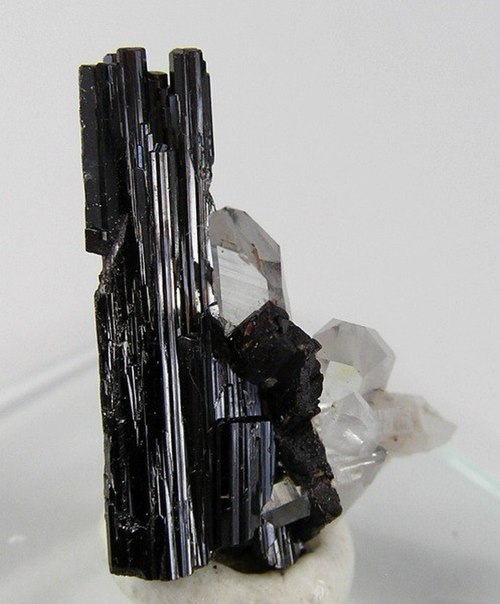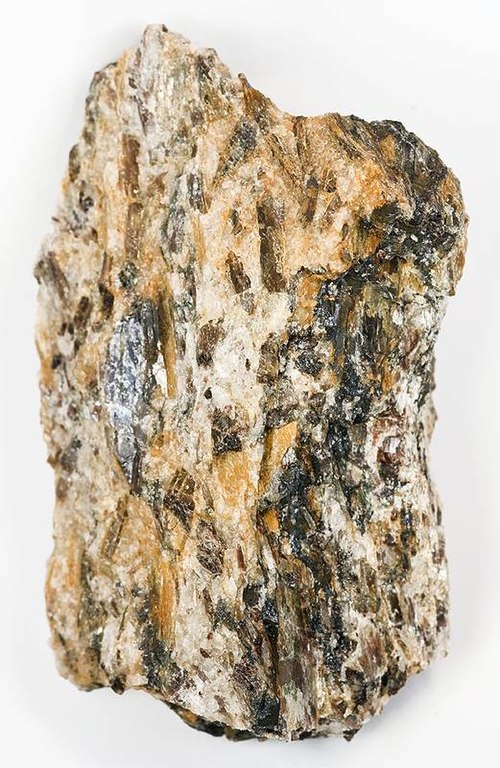Metalnoun
(heading) Chemical elements or alloys, and the mines where their ores come from.
Metalnoun
Any of a number of chemical elements in the periodic table that form a metallic bond with other metal atoms; generally shiny, somewhat malleable and hard, often a conductor of heat and electricity.
Metalnoun
Any material with similar physical properties, such as an alloy.
Metalnoun
(astronomy) An element which was not directly created after the Big Bang but instead formed through nuclear reactions; any element other than hydrogen and helium.
Metalnoun
Crushed rock, stones etc. used to make a road.
Metalnoun
(mining) The ore from which a metal is derived.
Metalnoun
(obsolete) A mine from which ores are taken.
Metalnoun
(tincture) A light tincture used in a coat of arms, specifically argent and or.
Metalnoun
Molten glass that is to be blown or moulded to form objects.
Metalnoun
(music) A category of rock music encompassing a number of genres (including thrash metal, death metal, heavy metal, etc.) characterized by strong drum-beats and distorted guitars.
Metalnoun
(archaic) The substance that constitutes something or someone; matter; hence, character or temper; mettle.
Metalnoun
The effective power or calibre of guns carried by a vessel of war.
Metalnoun
The rails of a railway.
Metalnoun
The actual airline operating a flight, rather than any of the codeshare operators.
Metaladjective
(music) Characterized by strong drum-beats and distorted guitars.
Metaladjective
Having the emotional or social characteristics associated with metal music; brash, bold, frank, unyielding, etc.
Metalverb
To make a road using crushed rock, stones etc.
Metalnoun
An elementary substance, as sodium, calcium, or copper, whose oxide or hydroxide has basic rather than acid properties, as contrasted with the nonmetals, or metalloids. No sharp line can be drawn between the metals and nonmetals, and certain elements partake of both acid and basic qualities, as chromium, manganese, bismuth, etc.
Metalnoun
Ore from which a metal is derived; - so called by miners.
Metalnoun
A mine from which ores are taken.
Metalnoun
The substance of which anything is made; material; hence, constitutional disposition; character; temper.
Metalnoun
Courage; spirit; mettle. See Mettle.
Metalnoun
The broken stone used in macadamizing roads and ballasting railroads.
Metalnoun
The effective power or caliber of guns carried by a vessel of war.
Metalnoun
Glass in a state of fusion.
Metalnoun
The rails of a railroad.
Metalverb
To cover with metal; as, to metal a ship's bottom; to metal a road.
Metalnoun
any of several chemical elements that are usually shiny solids that conduct heat or electricity and can be formed into sheets etc.
Metalnoun
a mixture containing two or more metallic elements or metallic and nonmetallic elements usually fused together or dissolving into each other when molten;
Metalverb
cover with metal
Metaladjective
containing or made of or resembling or characteristic of a metal;
Metalnoun
a solid material which is typically hard, shiny, malleable, fusible, and ductile, with good electrical and thermal conductivity (e.g. iron, gold, silver, and aluminium, and alloys such as steel)
Metalnoun
the steel tracks of a railway
Metalnoun
gold and silver (as tinctures in blazoning).
Metalnoun
broken stone for use in making roads
Metalnoun
molten glass before it is blown or cast.
Metalnoun
heavy metal or similar rock music
Metalverb
made from or coated with metal
Metalverb
make or mend (a road) with road metal
Metal
A metal (from Greek μέταλλον métallon, ) is a material that, when freshly prepared, polished, or fractured, shows a lustrous appearance, and conducts electricity and heat relatively well. Metals are typically malleable (they can be hammered into thin sheets) or ductile (can be drawn into wires).
Mineralnoun
(geology) Any naturally occurring inorganic material that has a (more or less) definite chemical composition and characteristic physical properties.
Mineralnoun
Any inorganic material (as distinguished from animal or vegetable).
Mineralnoun
(nutrition) Any inorganic element that is essential to nutrition; a dietary mineral.
Mineralnoun
(British) Mineral water.
Mineralnoun
A soft drink, particularly a single serve bottle or can.
Mineralnoun
(obsolete) A mine or mineral deposit.
Mineralnoun
(obsolete) A poisonous or dangerous substance.
Mineraladjective
of, related to, or containing minerals
Mineralnoun
An inorganic species or substance occurring in nature, having a definite chemical composition and usually a distinct crystalline form. Rocks, except certain glassy igneous forms, are either simple minerals or aggregates of minerals.
Mineralnoun
A mine.
Mineralnoun
Anything which is neither animal nor vegetable, as in the most general classification of things into three kingdoms (animal, vegetable, and mineral).
Mineraladjective
Of or pertaining to minerals; consisting of a mineral or of minerals; as, a mineral substance.
Mineraladjective
Impregnated with minerals; as, mineral waters.
Mineralnoun
solid homogeneous inorganic substances occurring in nature having a definite chemical composition
Mineraladjective
relating to minerals;
Mineraladjective
of or containing or derived from minerals;
Mineraladjective
composed of matter other than plant or animal;
Mineral
In geology and mineralogy, a mineral or mineral species is, broadly speaking, a solid chemical compound with a fairly well-defined chemical composition and a specific crystal structure that occurs naturally in pure form.The geological definition of mineral normally excludes compounds that occur only in living beings. However some minerals are often biogenic (such as calcite) or are organic compounds in the sense of chemistry (such as mellite).



































